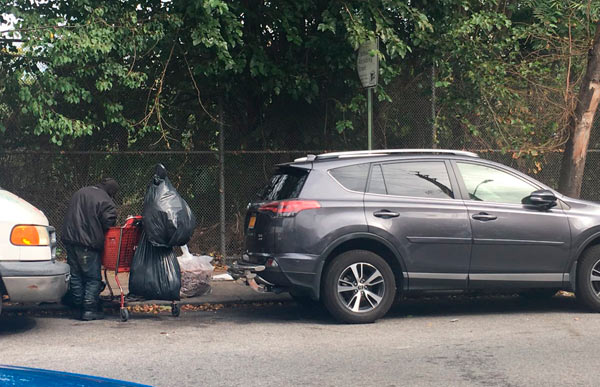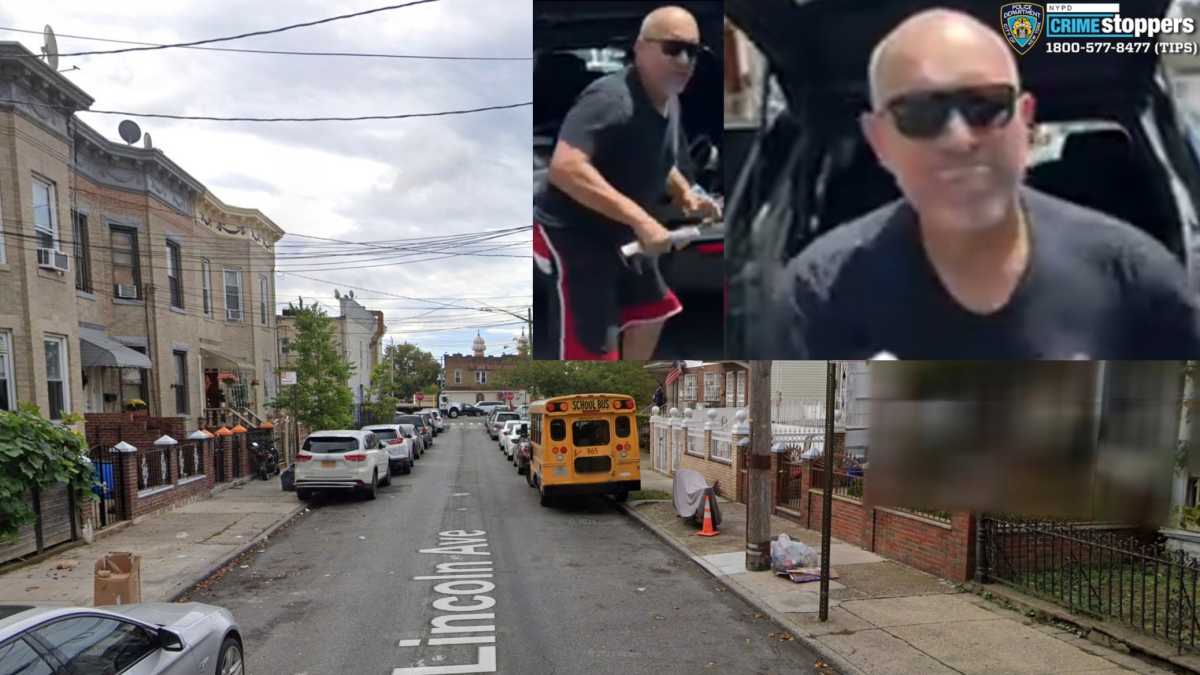The city must do more to get the longtime homeless population of Dyker Heights off the nabe’s streets before they endanger local families and children, residents say.
The slew of homeless people in the area — and particularly on the stretch of 62nd Street between 11th and 14th avenues — has left residents concerned, frustrated, and fearful for their own safety, with one resident saying that she doesn’t allow her kids to walk to school alone ever since transients started hanging out in groups in the past year.
“I feel it’s very unsafe because sometimes they’re drunk and they’re very violent,” said Jenny Chan, who has worked in the area for the past five years whose son, Ethan, goes to nearby PS 160. “My son walks by them to go to school, but usually I take him because I feel insecure. Before it was only a couple here and there, we didn’t feel like it was challenging, but now it’s become a group.”
The number of 311 calls complaining about the homeless on 62nd Street has actually declined this year, according to city data, with just 33 calls in the first nine months of this year, after spiking to 111 calls last year.
But Dyker Heights residents, and the district manager of Community Board 10, said that homelessness has been a longtime issue in the nabe, and that homeless who refuse service makes it even harder for the city to get them off the streets.
“Some of them don’t want service, and it’s very difficult when a person is refusing services,” said Josephine Beckmann.
The number of homeless shunning services has swelled over the past year as President Trump’s immigration policies have led undocumented homeless people to avoid the city shelter system for fear of deportation, according to street-dwellers and their advocates.
The Department of Homeless Services’ outreach teams canvass the stretch of 62nd street where the homeless are known to congregate on a daily basis, according to a spokesman, and the agency knows of only one homeless person who refuses to accept services.
On recent visits to Dyker Heights, the several homeless men along 62nd Street all declined to comment.
But Chen said that she regularly sees groups of homeless in the neighborhood — on 62nd Street, at neighborhood subway stations, and at gas stations. And she said that a handful of them had even set up camp in the driveway next to her business, and that they only cleared out once the city outreach teams came around and encouraged them to move.
“They peed there, they cooked there, they slept there,” she said. “They shouldn’t be there.”
Chen also said she’s concerned for her own safety, seeing the homeless men in her neighborhood regularly panhandle, curse, and drink.
“You don’t know what they’re going to do to you,” she said.
Other locals — particularly men — said that they were less worried about their own safety and more concerned about city agencies doing enough to get the homeless off the streets and into shelters.
“They need help and it shouldn’t be that way,” said George Anthony, a longtime Dyker Heights resident. “They’re homeless, it’s a shame, and they need shelter.”
Another local man said he feels helpless when he sees the persistent population of transients, and he wished the city would do more to help them get jobs.
“Honestly, my parents and everyone around me always told me just to walk away — ignore them — you can’t really do much for them. In the end, you kind of just grow accustomed to seeing all these people around,” said Mike Orellana, who lives in Borough Park but visits Dyker Heights on a daily basis. “[The city should] get them jobs or something. They shouldn’t be here just wallowing, living on cardboard.”
It takes outreach workers an average of five months to convince a homeless person to accept help from the city, said a spokesman for Department of Homeless Service, and concerned New Yorkers should call 311 to request outreach assistance.
“It can take months of persistent and compassionate engagement to successfully connect street homeless individuals with city services,” said Isaac McGinn. “This work takes time and we remain undeterred in bringing people off the street.”

























